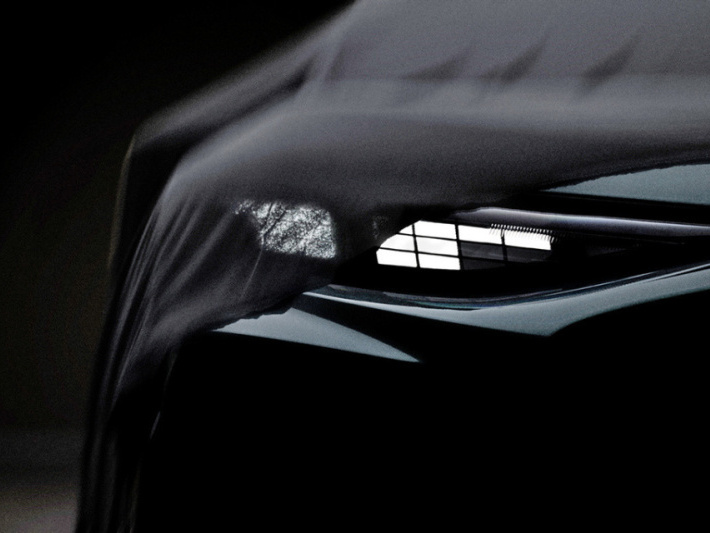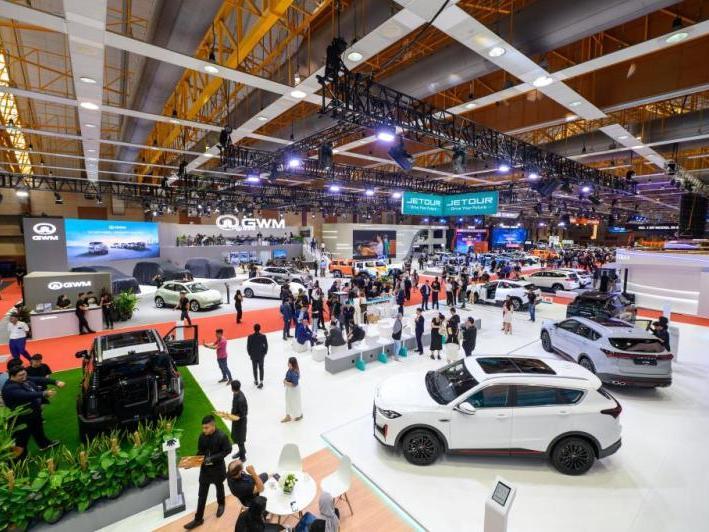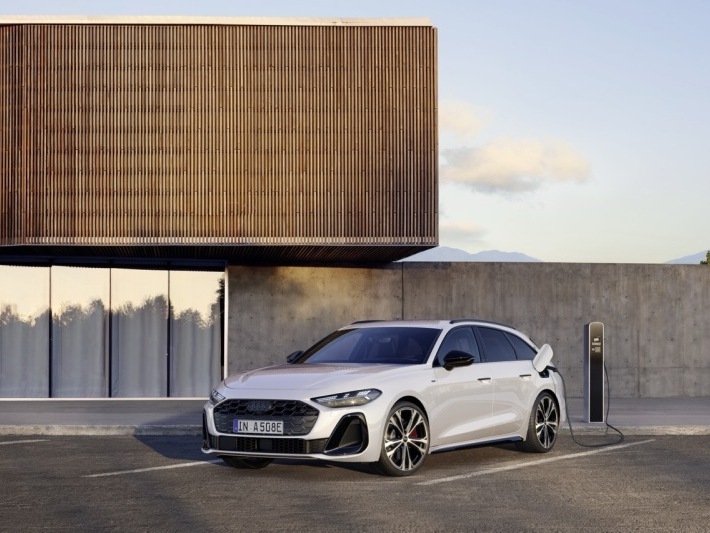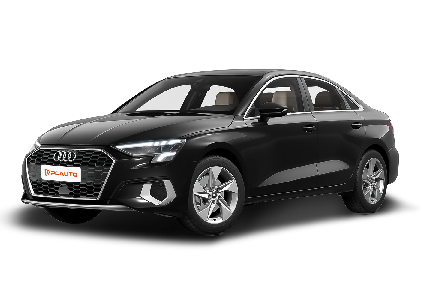Q
Is Audi A3 faster than A4?
Normally, Audi A4 is faster than A3. The 2019 Sedan 1.4 TFSI version of the Audi A3 is equipped with a 1.4T engine, with a maximum horsepower of 150Ps, a top speed of 224km/h, and an official 0 - 100km/h acceleration time of 8.2 seconds. While the Audi A4 is generally equipped with a 2.0T engine, with a maximum horsepower of 252Ps, which offers stronger power. The greater horsepower enables the A4 to display better power performance in scenarios like acceleration and overtaking, achieving a faster speed. However, the actual driving speed of a vehicle is also affected by various factors such as driving style, road conditions, and vehicle load. For example, in congested traffic, the compact body of the A3 may allow it to move through more nimbly, but this doesn't mean it's truly faster. On open roads like highways, the power advantage of the A4 can be more fully utilized.
Special Disclaimer: This content is published by users and does not represent the views or position of PCauto.
Related Q&A
Q
What's the lifespan of Audi A3's engine?
The service life of Audi A3's engine can be different. Under normal maintenance and usage conditions, it can run for about 300,000 kilometers or be used for around 10 years without significant problems. The prerequisite is that you use high - quality engine oil and filters and replace them on time, as the engine requires proper lubrication and clean intake air. For example, using fully synthetic engine oil that meets Volkswagen standards (such as 502 00, SAE 5W40) can improve the engine's durability.
In addition, the driving environment is also crucial. Harsh conditions like extreme high or low temperatures, dusty areas, or traffic with frequent stops and starts may shorten its service life. Similarly, driving habits also have an impact. Aggressive driving styles with rapid acceleration and hard braking will cause more wear and tear on engine components. On the contrary, gentle driving and allowing the engine to properly warm up and cool down can help extend its service life.
Q
Is Audi A3 a small or medium car?
The Audi A3 is a small car, specifically a compact vehicle. It belongs to the C-segment category. Its body length is 4,458 millimeters, width is 1,796 millimeters, height is 1,416 millimeters, and wheelbase is 2,637 millimeters. These dimensions classify it as a compact car. Compact cars like the Audi A3 are well - known for being more suitable for urban driving and typically having lower fuel consumption. They're perfect for daily commuting and can be parked in tight spaces. The size of the A3 also means it generally requires less storage space and is easier to be driven on congested roads. Even though the Audi A3 is a small car, it still offers a high level of comfort, safety features, and performance, which makes it a popular choice for car buyers who value the combination of practicality and luxury.
Q
Does Audi A3 deliver potent power output?
Yes, Audi A3 can be regarded as a car with potent power. 2019 Audi A3 Saloon 1.4 TFSI is equipped with a 1.4-liter turbocharged engine, which can deliver 150 horsepower and a power output of 110 kilowatts. It has a top speed of up to 224 km/h and can accelerate from 0 to 100 km/h in just 8.2 seconds. Such performance is adequate for daily driving, enabling smooth acceleration both on urban roads and highways. Moreover, with the engine's torque output at 1500 - 3500 revolutions per minute, it can provide instant power when needed. The dual-clutch transmission (DCT) also helps achieve seamless gear shifts, offering a smooth driving experience. Although it may not be a high-performance sports car, it can provide sufficient power to meet the needs of most drivers, whether for daily commuting or weekend road trips. Combining its power with features like front-wheel drive and independent suspension, it becomes a well-balanced choice in terms of performance and handling.
Q
Is Audi A3 a comfortable car?
Audi A3 can be considered a comfortable car in many aspects. It has various features that bring a pleasant driving and riding experience. The front seats offer 4-way electric adjustment for the driver and passengers, making it easy for them to find a proper sitting position. The dual-zone automatic air - conditioning system in the front row ensures that the driver and front - seat passengers can enjoy a comfortable temperature.
In terms of driving quality, it is equipped with a MacPherson independent suspension at the front and a multi - link independent suspension at the rear, which can absorb shocks and handle uneven roads, providing a smooth driving and riding experience. There are also some comfort - enhancing configurations inside the car. The fully digital instrument cluster and the touch - controlled center console screen provide a modern and convenient operating interface.
However, for some people, the rear - seat space with a 60:40 split - folding function may seem a bit compact. And the small trunk volume can be a drawback for those who need to carry a large amount of stuff. Overall, despite the certain limitations in space, the Audi A3 can still offer a good comfort experience for daily commuting and short trips.
Q
Which one is better, Audi A3 or A4?
Audi A3 and A4 each have their own advantages, making it difficult to simply judge which one is better. A3 is a compact car with a guide price of RM 231,360. It has dimensions of 4458*1796*1416mm and a wheelbase of 2637mm. It's small and nimble, perfect for city commuting. The interior has a strong sense of technology, with a simple layout of the center console. The three - spoke leather multi - function steering wheel highlights its sporty character. It's equipped with a 1.4T engine, and the power is sufficient for daily use.
On the other hand, the A4 is a mid - sized car, usually with a higher price. It has dimensions of 4858*1847*1439mm and a wheelbase of 2908mm, offering more spacious interior space, especially in the rear seats where passengers can enjoy a more comfortable ride. The interior is luxurious, and the configuration is more abundant, such as a panoramic sunroof that can be opened and leather seats. In terms of power, it's equipped with a 2.0T engine, providing stronger power.
If you have a limited budget and value individuality and flexible handling more, A3 is a great choice. However, if you pursue a sense of luxury, large space, and strong power, and your budget allows, the A4 would be more suitable for you.
Q
Which model year of Audi A3 is the best?
It's difficult to say which model year of Audi A3 is the best, as it depends on personal needs and budget. If your budget is limited, the models from 2014 to 2016 are more suitable. They have an affordable price and a relatively stable resale value. However, these early models may have some minor problems like abnormal noises and oil leaks. You need to carefully check the vehicle condition when purchasing. If you pursue quality and performance, the models from 2017 to 2019 are a good balanced choice. Take the 2019 Audi A3 Sedan 1.4 TFSI as an example. It's priced at RM 231,360. Its top speed can reach 224 km/h, and it takes 8.2 seconds to accelerate from 0 to 100 km/h according to the official data. The official combined fuel consumption is 4.9L/100km. It is equipped with rich configurations, such as 6 airbags, engine start - stop technology, a multi - function steering wheel and so on. Later versions, like the 2025 model, may be more advanced in terms of power and technological configurations. For instance, it's equipped with a new engine, with more stable and smooth power tuning. It offers better stability and noise insulation during high - speed driving, providing a more premium overall driving experience.
Q
Does Audi A3 have high maintenance cost?
The maintenance cost of Audi A3 is relatively high. It provides a 5 - year, unlimited - mileage warranty. The first maintenance is required at 10,000 kilometers or 1 year, and a free minor adjustment is provided, which includes engine oil and filter replacement with no labor cost. After that, the maintenance interval is also 10,000 kilometers or 1 year.
The cost of a minor adjustment at the original factory is about RM1,463. The cost of a routine maintenance at 60,000 kilometers is about RM11,645. The maintenance cost per 10,000 kilometers is about RM1,940, and the price of a routine maintenance at 100,000 kilometers is about RM21,745.
Compared with some models in the same class, the frequency of some maintenance items for the Audi A3 is higher and the cost is a bit more. For example, its maintenance cycle is 10,000 kilometers or 12 months, while the BMW 1 Series has a maintenance cycle of 15,000 kilometers or 12 months, so the engine oil and filter of the Audi A3 need to be replaced more frequently.
However, if you choose non - original maintenance, the cost can be reduced by about 30%. But you need to carefully choose the repair shop. When the car is used for a long time or has covered a long distance, the maintenance cost will increase. Reasonably planning the maintenance schedule and developing good driving habits can control the maintenance cost to a certain extent.
Q
Is Audi A3 bigger than Mercedes A Class?
Body dimensions and wheelbase are often used to compare the size of car models. Take the 2023 imported Mercedes - Benz A - Class A200 Fashion Hatchback and the 2022 Audi A3 Sportback 35 TFSI Luxury Elegant Edition as examples. The length, width and height of the Mercedes - Benz A - Class are 4419mm × 1796mm × 1432mm, with a wheelbase of 2729mm. The length, width and height of the Audi A3 are 4343mm × 1815mm × 1458mm, and its wheelbase is 2630mm. As can be seen, the Mercedes - Benz A - Class has advantages in length and wheelbase, which means it might have more spacious longitudinal interior space, offering a more comfortable ride for passengers, especially in the rear seats. However, the Audi A3 is slightly wider, so its interior lateral space may be a bit better. Generally speaking, the overall space of the Mercedes - Benz A - Class is larger. Of course, the dimensions of different versions of car models may vary. When buying a car, you can make a detailed comparison of the sizes of specific models.
Q
Is Audi A3 a good choice for beginners?
Yes, Audi A3 is a great choice for beginners. Priced at RM 231,360, it makes people get a luxury car without too much cost. It can reach a top speed of 224 km/h and accelerate from 0 to 100 km/h in just 8.2 seconds, so its performance is adequate for meeting daily driving needs.
The car is equipped with a range of standard safety features, such as six airbags, an Anti - lock Braking System (ABS), and a Electronic Stability Control system, which are crucial for novice drivers. Automatic air - conditioning, a full - LCD display, and a touchscreen add to comfort and convenience. The 4 - way power - adjustable front seats and 60:40 split - folding rear seats offer flexibility.
The compact size of the Audi A3 makes it easy to handle and park in traffic, which is especially beneficial for new drivers. However, like any car, it also has its disadvantages. But overall, it strikes a good balance between luxury, functions, and driving performance for beginners.
Q
Which model of Audi A3 is the best?
There's no absolute "best" Audi A3. You need to make a choice based on your personal needs and preferences. If you value basic configurations but have a limited budget, earlier versions such as those from 2014 - 2016 are more suitable, as they provide an affordable price and a stable resale value, but there might be minor issues like abnormal noises and oil leakage. If you focus on quality and performance, the models from 2017 - 2019 are a well - balanced choice. Take the 2019 Audi A3 Sedan 1.4 TFSI as an example. It's priced at RM 231,360, with a top speed of 224 km/h. The official 0 - 100 km/h acceleration takes 8.2 seconds, and the official combined fuel consumption is 4.9L/100km. The vehicle comes with a 5 - year warranty with no mileage limit. It's equipped with many practical features, such as six airbags, a reversing radar, and a parking camera. In terms of space, it's 4458mm long, 1796mm wide, and 1416mm high, with a wheelbase of 2637mm. The fuel tank capacity is 50L, and the trunk capacity is 425L, which can meet the needs of daily commuting and family use.
Popular Cars
Model Year
Car Compare
Car Photo
Latest Q&A
Q
What is a seat belt check?
A seatbelt inspection is a functional check of a vehicle's seatbelt system to ensure it works properly in an emergency. It typically involves checking if the buckle fastens securely, if the retractor operates smoothly, if the mounting bolts are tight, and looking for signs of wear or cuts on the webbing. This check should be part of regular vehicle maintenance, especially for used cars or older vehicles, as long-term use can cause seatbelt metal parts to rust or the webbing to deteriorate. It's important to note that modern car seatbelts often work together with the airbag system; a faulty pre-tensioner could compromise overall passive safety performance. Beyond a visual check, you can test the locking function by pulling the seatbelt quickly, but avoid using excessive force to prevent damaging the mechanism. Some dashboard displays show a seatbelt warning light; if this function malfunctions, it might indicate a sensor issue. It's advisable to do a quick check every six months or before a long drive. If you notice the seatbelt doesn't retract smoothly or locks incorrectly, get it repaired immediately—after all, it's one of the most critical safety devices protecting occupants in a crash.
Q
What restraint is a seatbelt?
A seatbelt is a passive restraint system that primarily serves to secure the body of passengers in the event of a collision or sudden braking, preventing secondary impacts or flying out of the vehicle due to inertia. It is the most fundamental and critical component of vehicle safety configuration. Modern seat belts typically adopt a three-point design, which uses a combination of pre tensioners and force limiters to quickly tighten and moderately release the webbing at the moment of collision, reducing chest pressure and effectively dispersing impact force. Many new cars are also equipped with a reminder function for not being connected, which increases usage through sound or dashboard warnings. It is worth noting that when worn correctly, the waist belt should cross the hip bone rather than the abdomen, the shoulder strap should be slanted against the chest to avoid the neck, and children must use it with a safety seat. At present, some high-end models have integrated seat belt airbags or motor active adjustment functions to further reduce collision injuries. Despite the continuous upgrading of safety technology, seat belts are still the most direct and effective device for reducing casualties in accidents. It is essential to develop the habit of wearing them throughout daily driving.
Q
When to put on a seat belt?
Buckle up before you even start the engine—that's Driving 101, whether you're behind the wheel or just along for the ride. Distance or speed doesn't matter; even a slow-moving car can get into an accident. Kids need the right car seat for their size and weight, with the straps snug and secure. Thinking you only need a seatbelt on the highway? Big mistake. City streets are just as risky. Seatbelts are designed to spread out crash forces, cutting down on head and chest injuries big time. Studies show proper use slashes your risk of dying by 50%. Quick tip for expecting moms: keep the lap belt low across your hips, not your belly. A lot of new cars beep if you skip the belt, and that's a good thing—it's a reminder to make this life-saving habit second nature. Messing with the system or using one of those dummy buckles to silence the alarm? That's insanely dangerous. You could get a ticket, sure, but more importantly, you're gambling with your life.
Q
Why do cars have seatbelt alarms?
Cars come with seatbelt reminder alerts mainly to boost driving safety, using audio or visual cues to get passengers to buckle up and cut down on injury risks in accidents. Studies show that proper seatbelt use can slash the chance of fatal injuries by around 50%, which is why so many countries make this feature a mandatory standard. Modern vehicle alert systems usually go with a progressive reminder—starting with a gentle chime, then ramping up if ignored. Some models even show exactly which seatbelt isn’t fastened on the dashboard. Beyond legal requirements, these designs also highlight automakers’ focus on safety tech. Take high-end models, for example—some link up with pre-tensioning seatbelts or airbag systems to automatically tighten before a crash. It’s worth noting, though, while alerts do a solid job of increasing seatbelt use, drivers forming the habit of buckling up on their own is way more crucial. After all, no matter how advanced the reminder, it can’t replace personal safety awareness.
Q
Do seat belt reminder systems usually use an audible warning signal?
Yeah, seatbelt reminder systems usually use audible alerts to remind passengers to buckle up—it's one of the most common methods. The sound is typically an intermittent beep or chime that lasts a few seconds or until the seatbelt is fastened. This design ensures drivers and passengers notice the reminder right away and take action. Beyond the beeps, many cars pair in with visual warnings, like a flashing or lit indicator light on the dashboard. Some high-end models even throw up text or graphic prompts on the infotainment screen to really drive the message home. The volume and frequency of the beeps can vary between makes and models, but the goal's always the same: boost safety and cut down on risks from unbuckled seatbelts. Oh, and with advances in car tech, some newer vehicles are getting smarter with their reminders. Like, they use seat sensors to detect a passenger's weight, so they only chime if someone's actually sitting there—no more annoying alerts for empty seats. All these tweaks are about adapting better to different driving situations and keeping everyone safer on the road.
View MoreRelated News

Audi RS6 sedan version may return to compete fully with the BMW M5
WilliamNov 21, 2025

Audi TT Moment 2.0 Debuts This September on Porsche EV Platform
MichaelAug 1, 2025

Beyond Expectations: All-New Audi Q3 Coming June 16
RobertJun 13, 2025

Summarizing the 2025 Malaysia Auto Show, a large number of new cars were launched in Malaysia this year.
MichaelMay 12, 2025

Audi A5 Launches Its First PHEV Version, Accelerating from 0-100 km/h in Just 5.1 Seconds
JohnMar 27, 2025
View More
















Pros
Cons